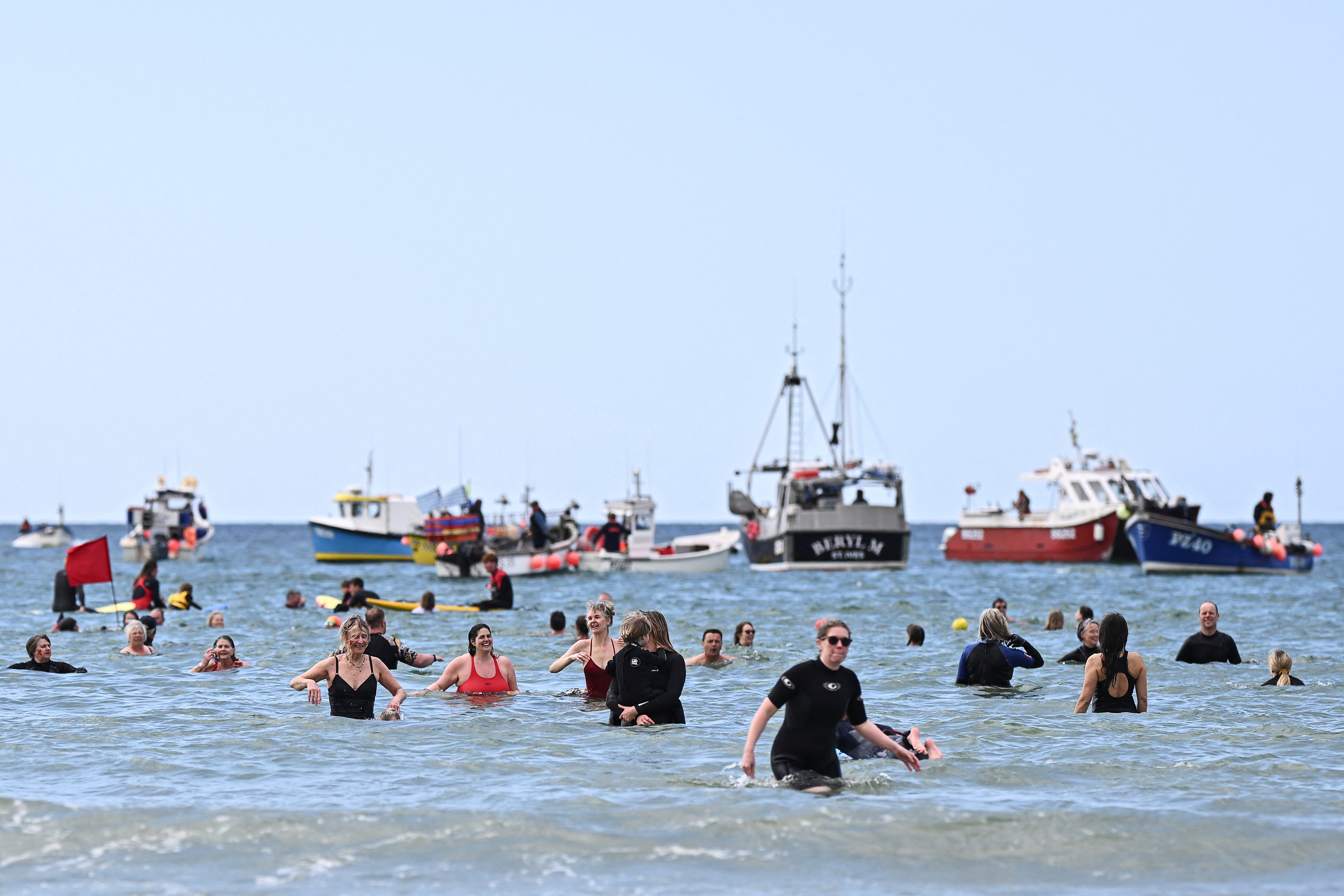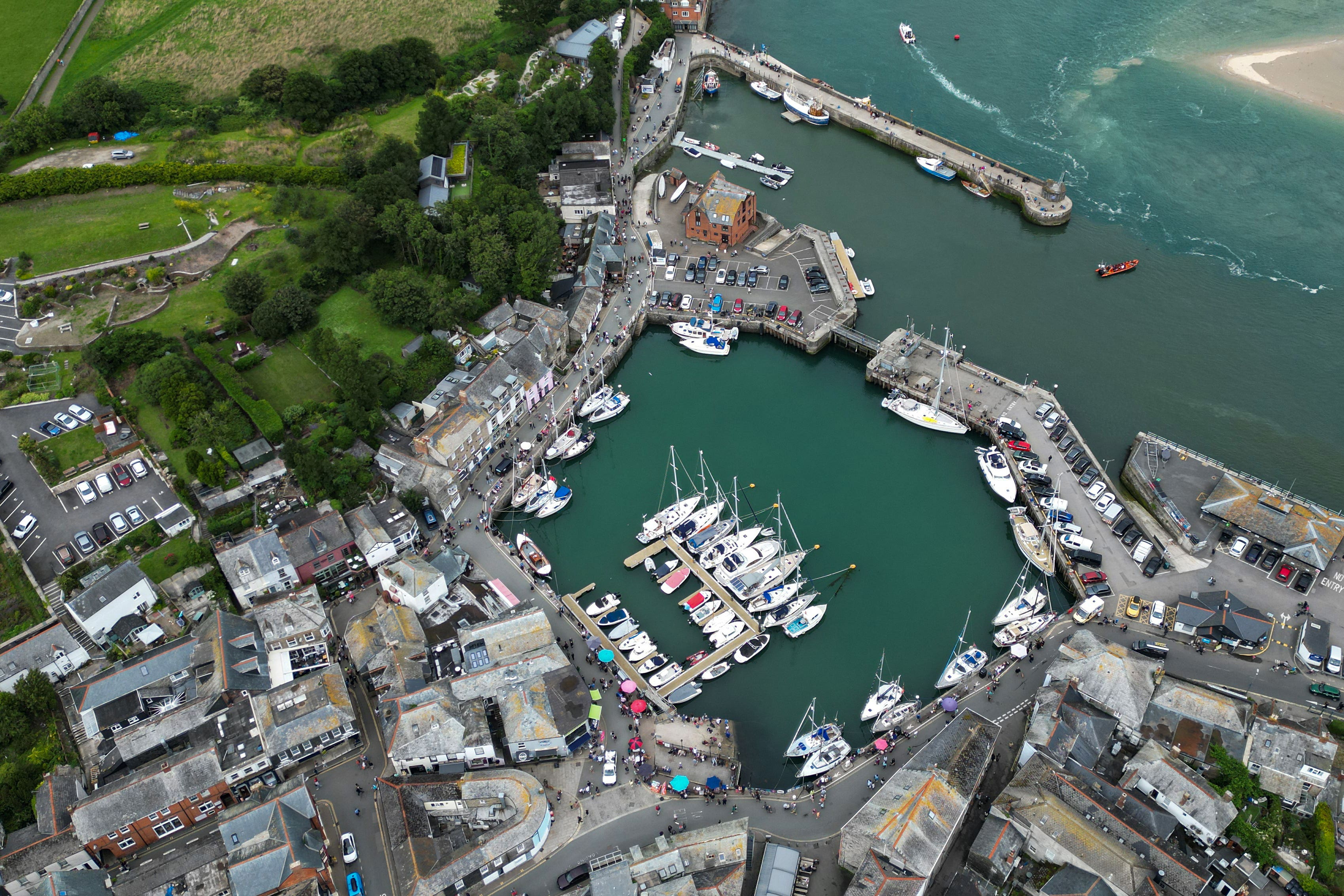Cornwall tourism chief warns holidaymakers could be taxed when visiting seaside
Cornwall Council has been urged to take the idea of tourism tax more seriously
Your support helps us to tell the story
This election is still a dead heat, according to most polls. In a fight with such wafer-thin margins, we need reporters on the ground talking to the people Trump and Harris are courting. Your support allows us to keep sending journalists to the story.
The Independent is trusted by 27 million Americans from across the entire political spectrum every month. Unlike many other quality news outlets, we choose not to lock you out of our reporting and analysis with paywalls. But quality journalism must still be paid for.
Help us keep bring these critical stories to light. Your support makes all the difference.
The Cornwall tourism chief has warned holidaymakers that he could “certainly envision” a tax on tourists being rolled out in the near future.
More than four million people visit Cornwall for a holiday every year, while an extra 12 million make day visits, according to a local committee report.

Malcolm Bell, the chief executive of Visit Cornwall, has now voiced his support for a “Cornish tax” to profit from these visits.
“It is a time to have the debate, not rush into action, engage with people and look at the art of the possible,” he told local outlet Cornwall Live.
It comes after Venice, in Italy, became the world’s first city to introduce a levy for tourists to thin the crowds that throng its canals.
Simone Venturini, the city councillor responsible for tourism and social cohesion, said the scheme would help Venice find “a new balance”. But the €5 charge caused hundreds to protest against what they viewed as a move to turn Venice into a “theme park”.
Mr Bell says a Cornwall tax should be applied in tandem with neighbouring Devon to avoid forcing tourists away from Cornwall. “There is no point in Devon not having one and us having one,” he said.
But the tax must be used to directly fund local business, he said, instead of going back to the Treasury as per normal taxes. He noted how the UK is already one of the highest-taxed visitor economies in Europe, second only to France, but that this money does not go back into the local economy.
“The normal argument would be we need some distribution of the money that already goes to His Majesty’s Treasury to instead go back into local levels,” he said.

He believes that tourists would be happy to pay the tax if they knew that the money would go back into the local economy.
“We have 85 per cent repeat business in Cornwall – holidaymakers who regularly return would want the levy to help Cornwall and its residents,” he said. “If holidaymakers want to contribute, if they think it’s going to the right cause, I wouldn’t mind.”
That Cornwall is such a popular destination also suggests a desire for well-maintained local environments, he said, which is a further argument for a tax that helps protect the region’s natural beauty and wildlife.
“People are cynical and want reassurance that their extra payment is going towards something appropriate,” he said. “But if it is just another levy added onto VAT and taxes? That is probably not what people want to see.”
Cornwall Council has launched a councillor-led inquiry aimed at improving the year-round benefits of tourism while supporting locals with well-paid employment and community services.
Some of the ideas put forward at a council meeting in January included urging the government to stagger school holidays and bringing in a registration scheme for short-term Airbnb-style holiday lets.
Another was a tourist tax, with councillor Mike Thomas, a former schoolteacher, calling for the option to be taken more seriously.

Join our commenting forum
Join thought-provoking conversations, follow other Independent readers and see their replies
Comments